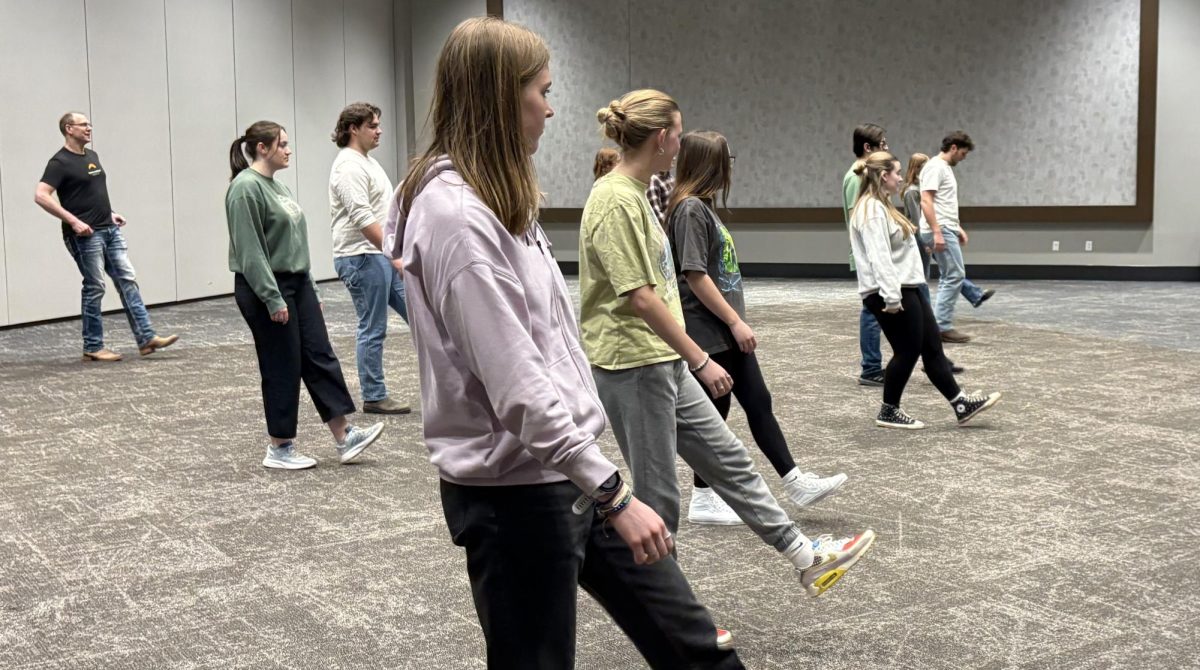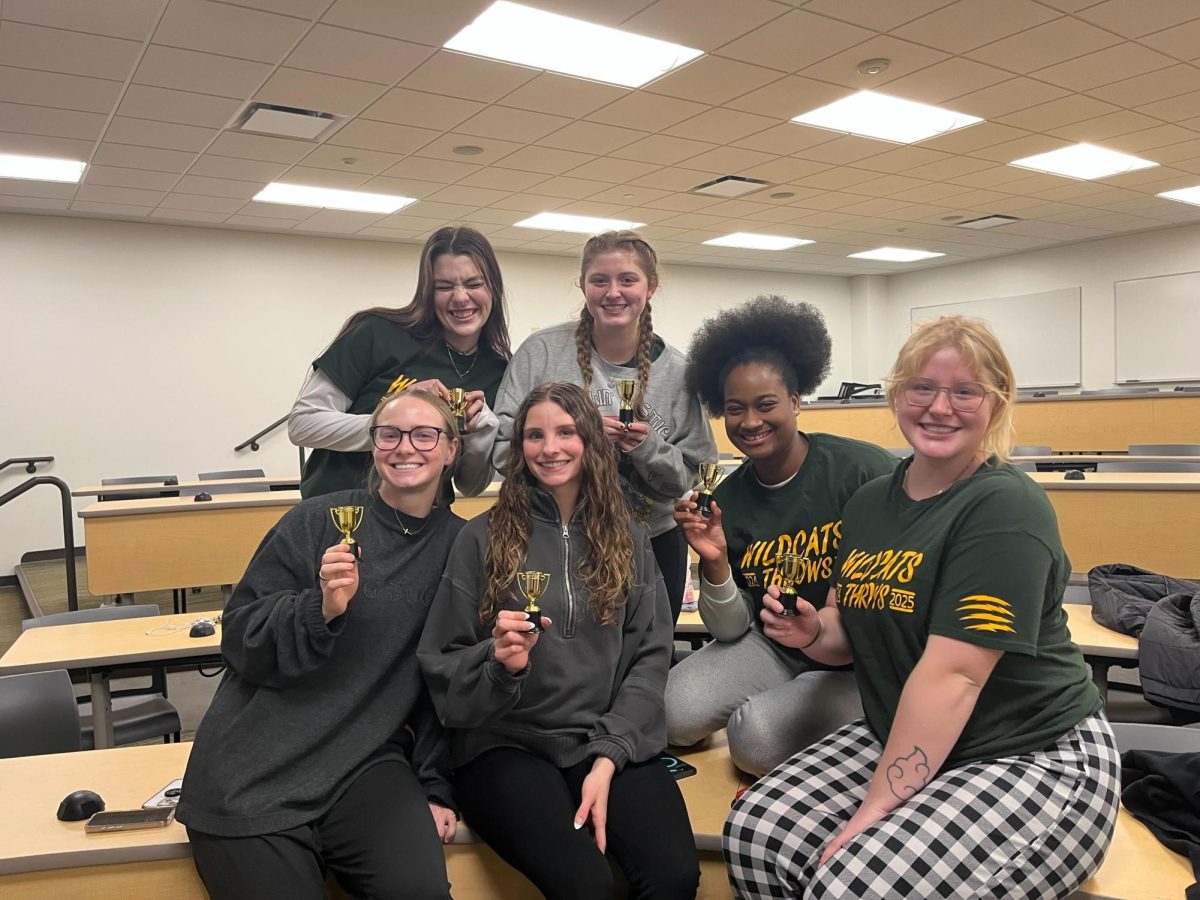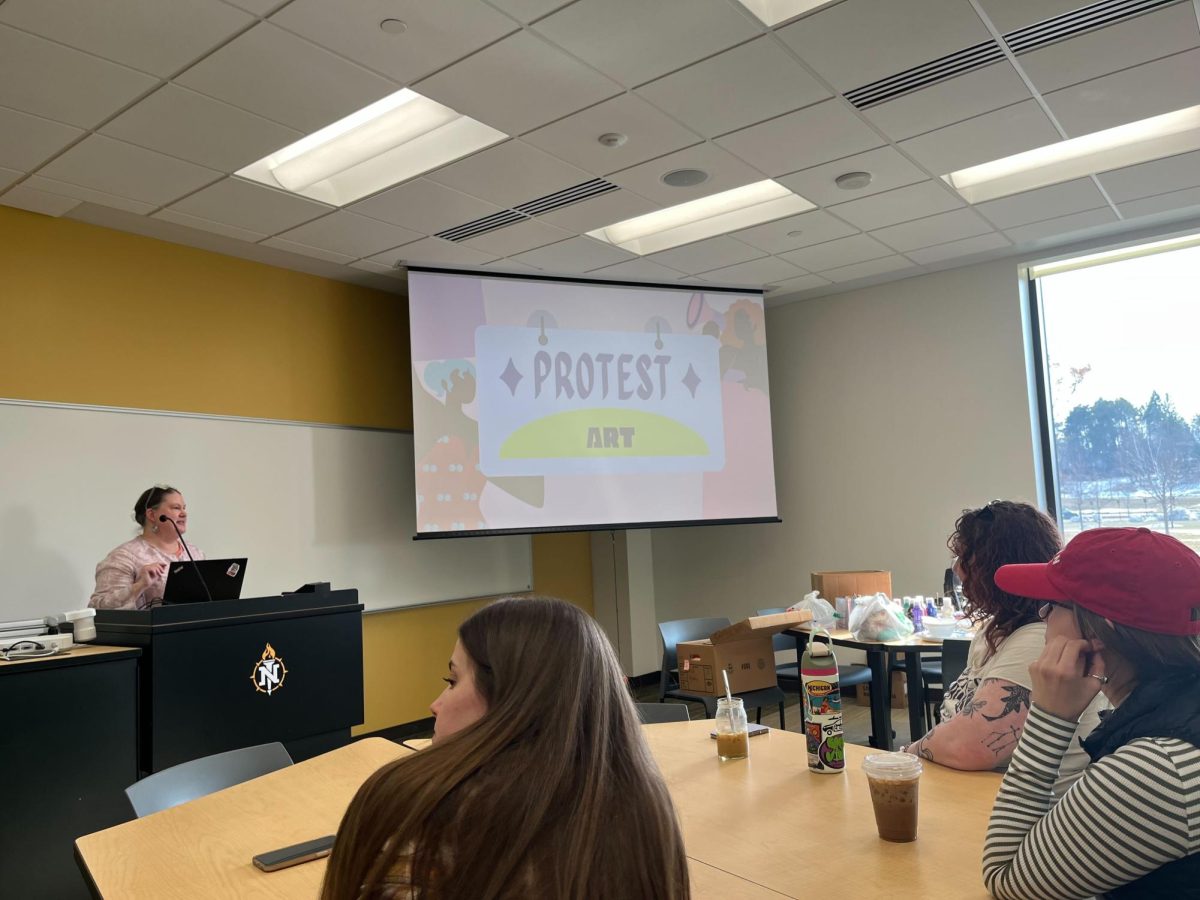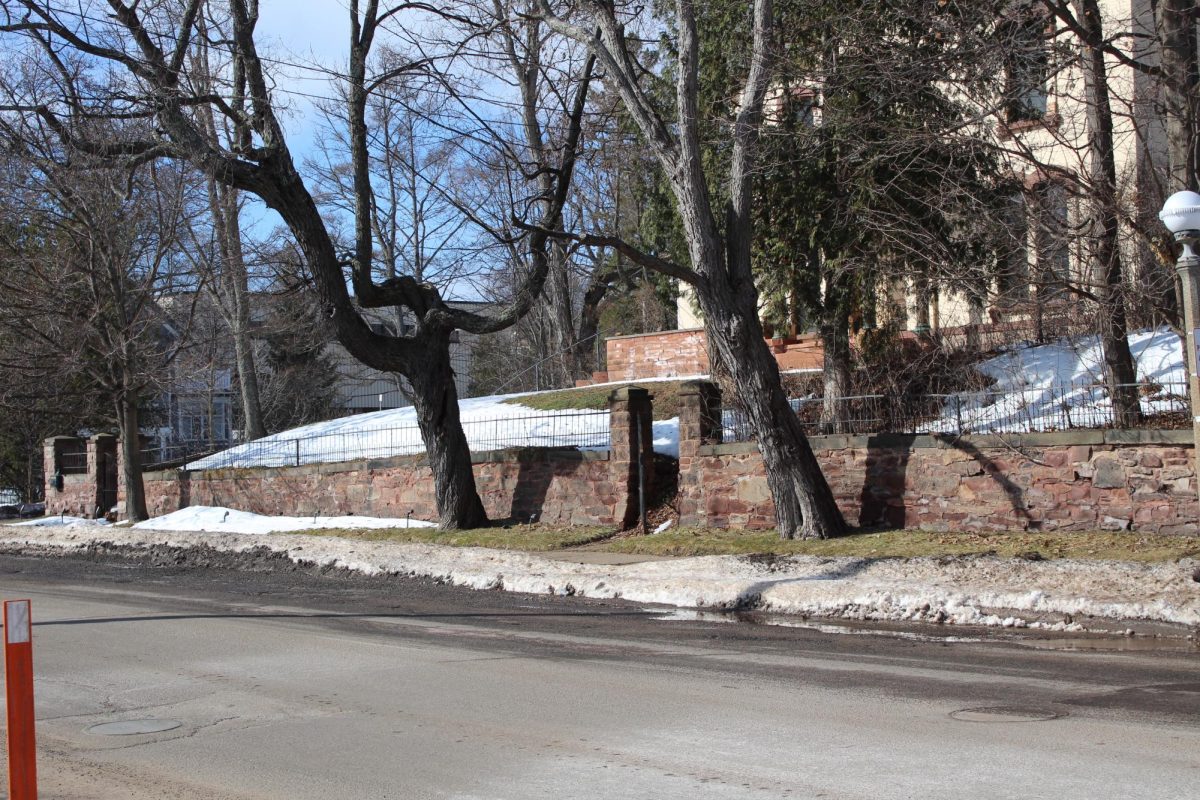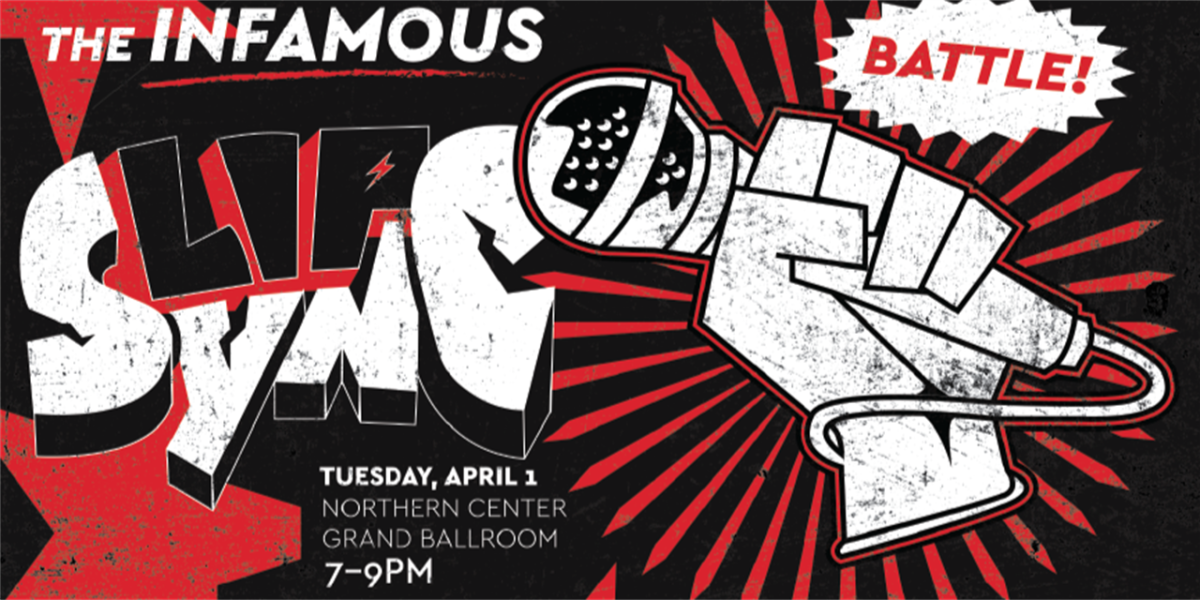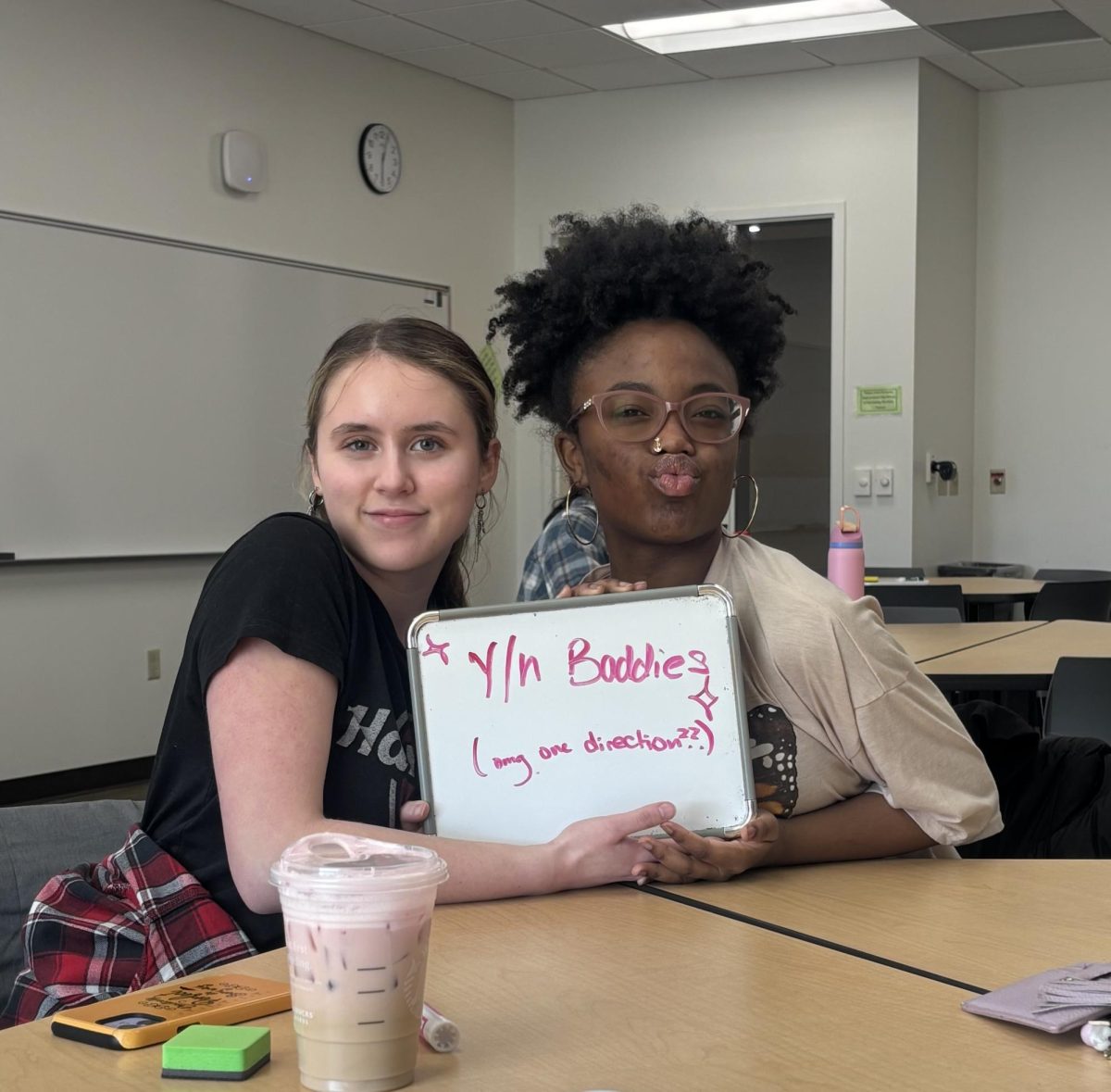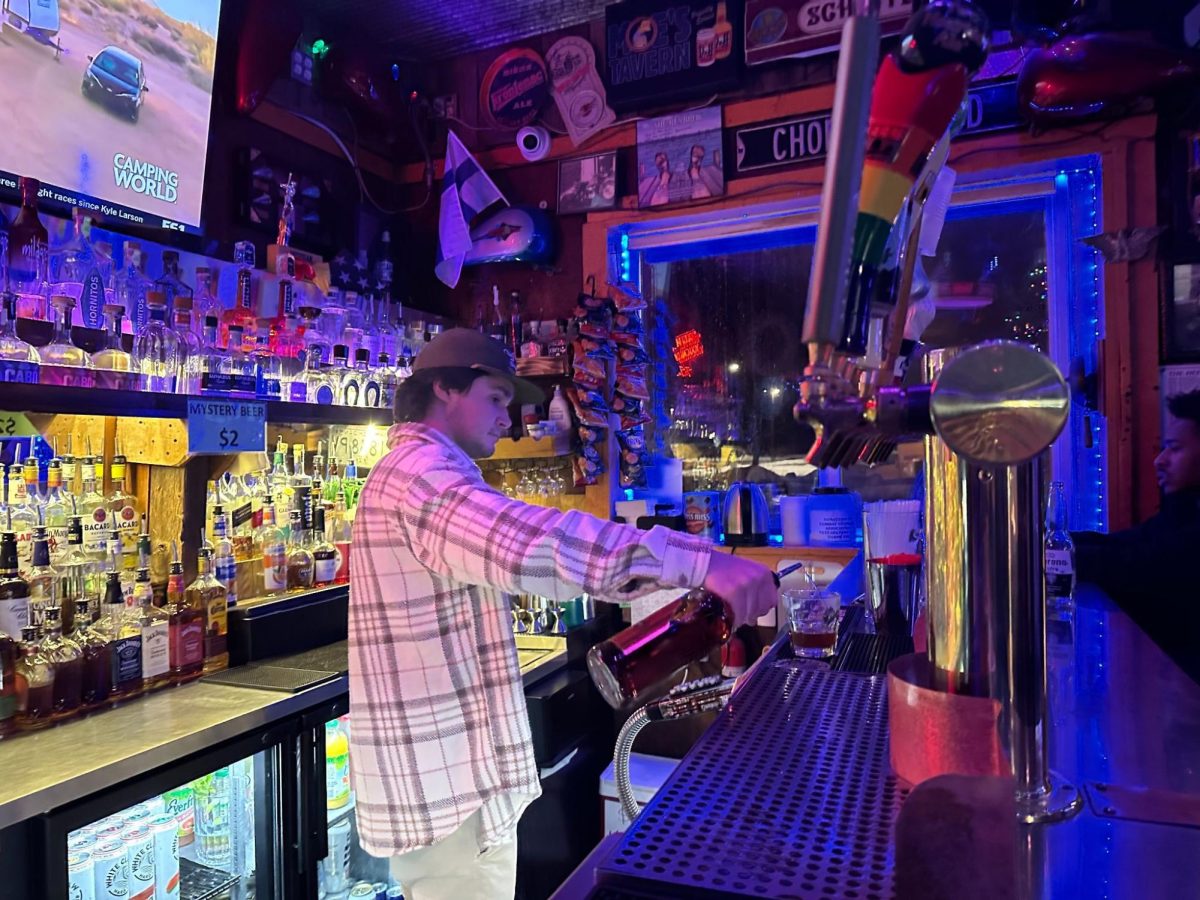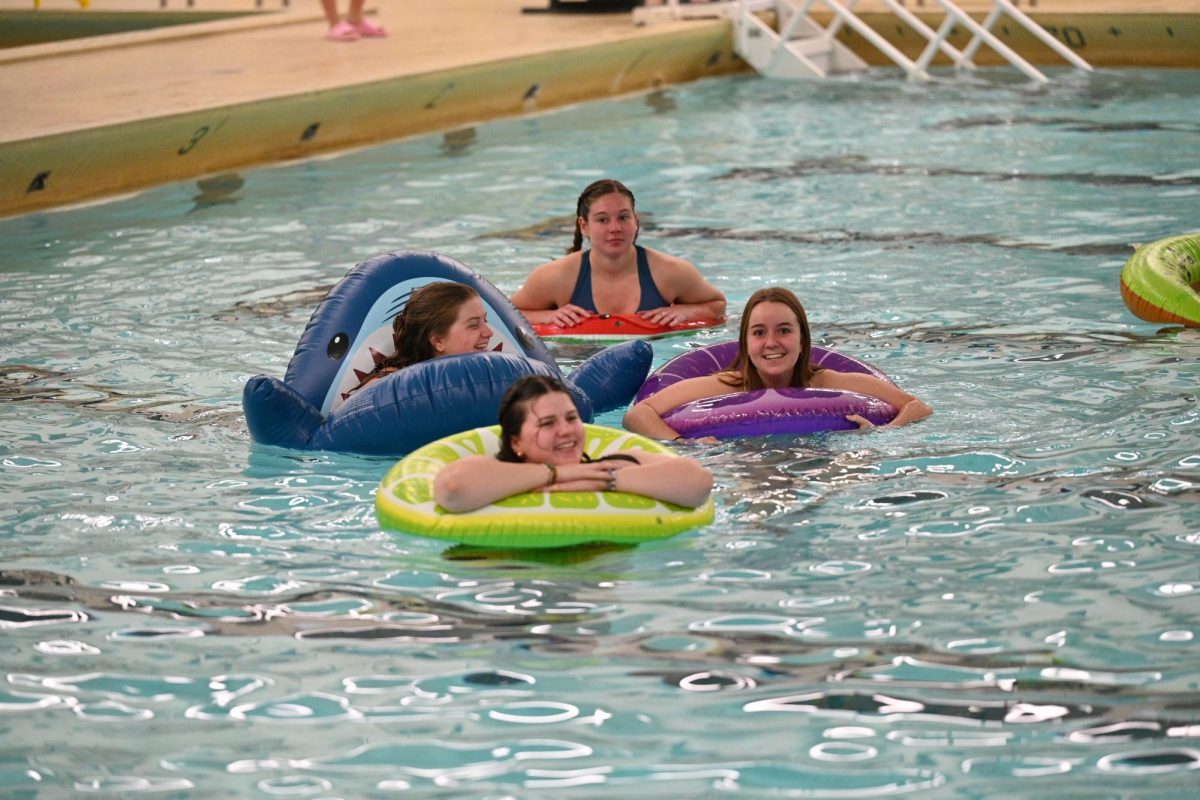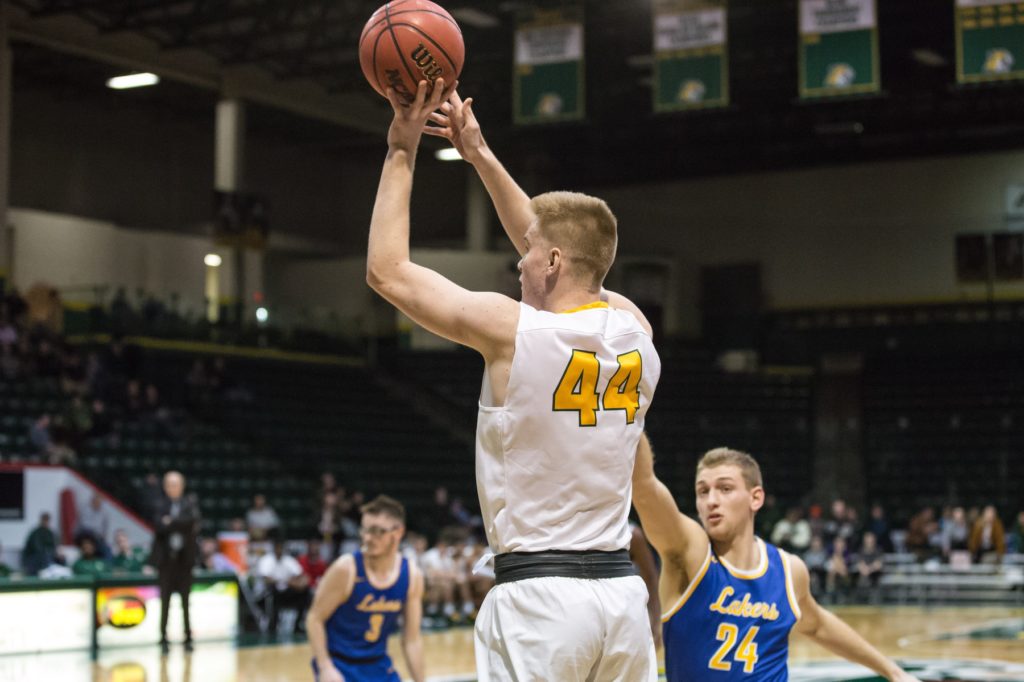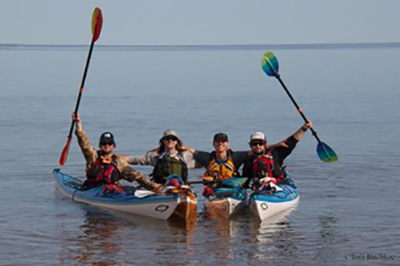Four the Water, a Marquette kayaking activist group, circumnavigated the world’s largest freshwater lake to raise awareness of the growing human impacts on Lake Superior.
One minute on the expedition, they were praying for the sun to go away. The next moment came rain and fog for 10-14 days, making it hard to charge solar power equipment or dry off clothes. But once 60 mph winds came out of nowhere, they got more vocal. When it was flat, they were falling asleep. Lake Superior holds 10 percent of the world’s freshwater. With its northern latitude there is unpredictable weather, behaving similarly to the ocean with waves reaching up to 30 feet like in the fall of 2017.
“Four the Water,” a group of Marquette kayaking activists including Ryan Busch, Karol Rajski, Jared VanOordt and Drew Etling, ventured off from Presque Isle Beach Monday, May 20, to paddle 1,792 miles around Lake Superior to raise money and spread their message for the need of conservation.
Circumnavigating the 3-quadrillion gallons of freshwater and visiting all the major Lake Superior islands in 102 days, they encountered treacherous waters during the day, camped on cold and wet beaches at night and craved an all-you-can-eat buffet along the way.
Their goal is to increase education and awareness of the impact and importance of clean water in the Great Lakes and to help develop a larger understanding of Lake Superior for smarter creative conservation projects and actions in the future. The group is promoting and raising money for non profit organizations like Superior Watershed Partnership (SWP) so their project can continue to have an impact, helping create future projects for protecting the Lakes.
“We’re just excited to get out in the water and educate, inspire and raise awareness for the Great Lakes,” Rajski said.
The four paddlers have significant experience paddling in Lake Superior’s environment as they all worked at least two summers guiding in Munising for Uncle Ducky’s at the Pictured Rocks National Lakeshore. As guides, they had to constantly observe the weather and water to make educated decisions on when, where or if to paddle to ensure safety for the guests.
On their expedition the group was in contact with the local Coast Guard, using certified GPS beacons, and carried the Coast Guard required gear.
They stayed off the water for only 18 days, due to weather or time spent acquainting with business owners, professors, fishermen, artists, lightkeepers and First Nations: the people who understand how valuable the Great Lakes are. Getting to know individuals is the sole purpose behind the trip, Busch said.
Billion dollar industries, like tourism, destroy the natural environment. Through recreation, policies, energy production and use, cultivation, transportation, shipping and production all life on land or in water can be affected.
“The relationship between nature and industry is extremely delicate. The need for thoughtful, sustainable business decisions are crucial on keeping the ecosystem and its surrounding communities healthy,” VanOordt said.
The climate is changing fast and the need for conservation protection plans has never been more important for the future of the Great Lakes, VanOordt said.
Each year the United States and Canada litter 22 million pounds of plastic into the waters of the Great Lakes, according to a new Rochester Institute of Technology (RIT) study. With this in mind, the four kayakers collected 200 pounds of trash floating in the water. Most of the trash washes up along the shores accounting for 80 percent of waste found, and adds to the existing trash island in Lake Superior.
With the help of the SWP, the group tracked microplastic levels, which are tiny shards of plastic that threaten wildlife in the lake, by taking samples of the water along their paddle for lab testing. Detecting the traces of materials in the water can identify what is polluting certain areas of the water and where the pollution is coming from. Four the Water provided water samples in various recently undocumented areas all around the North Coast for SWP.
“We took nine samples from lakeside towns that are being tested for microplastics, a growing problem in the Great Lakes. We hope to use the samples to contribute to the understanding of plastic’s effects in the lake’s systems,” VanOordt said.
The Great Lakes are at an increasingly high level of risk from human environmental impacts.The outdated Enbridge Line 5 pipeline located under the Straits of Mackinac has leaked 29 times of over 1.1 million gallons of oil over its 65-years in operation.
In 2010 the largest inland oil spill in U.S. history occured in Talmadge Creek, a small Lake Michigan tributary, and resulted from a rupture in pipeline 6B owned by Enbridge Energy Partners. Up to one million gallons of tar-sand crude oil was released into the creek, which contaminated a 30-mile stretch of the Kalamazoo River taking six years of cleanup projects and $177 million in settlement fines to fix.
Still in Flint, only an hour away from the Great Lakes, there has not been clean drinking water in the last four years due to the ignorance of policymakers and the lack of conservation concerning safe drinking water.
“The devastation done to the environment due to human carelessness like in Flint and Kalamazoo are the exact incidences we need to be preventing in the Great Lakes and everywhere.The relationship between nature and industry is extremely delicate. The need for thoughtful, sustainable business decisions are crucial to keeping the ecosystem and its surrounding communities healthy. We hope to inspire those who are passionate about the outdoors to be involved and haveavoice,”VanOordt said.
The team filmed a documentary of their circumnavigation, which includes interviews and stories from people they encountered along the way. The film documents their own trials and tribulations, and a look at their first-hand interactions with the people who live so closely connected to the beautiful and powerful Lake Superior. The trailer to the film is set for release Thursday Oct. 18 at the Fresh Coast Film Festival.
“I can guarantee you right now, ‘Four the Water’ is not done. There’s plenty in store,” Busch said. “We plan on doing a lot more.”



